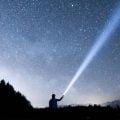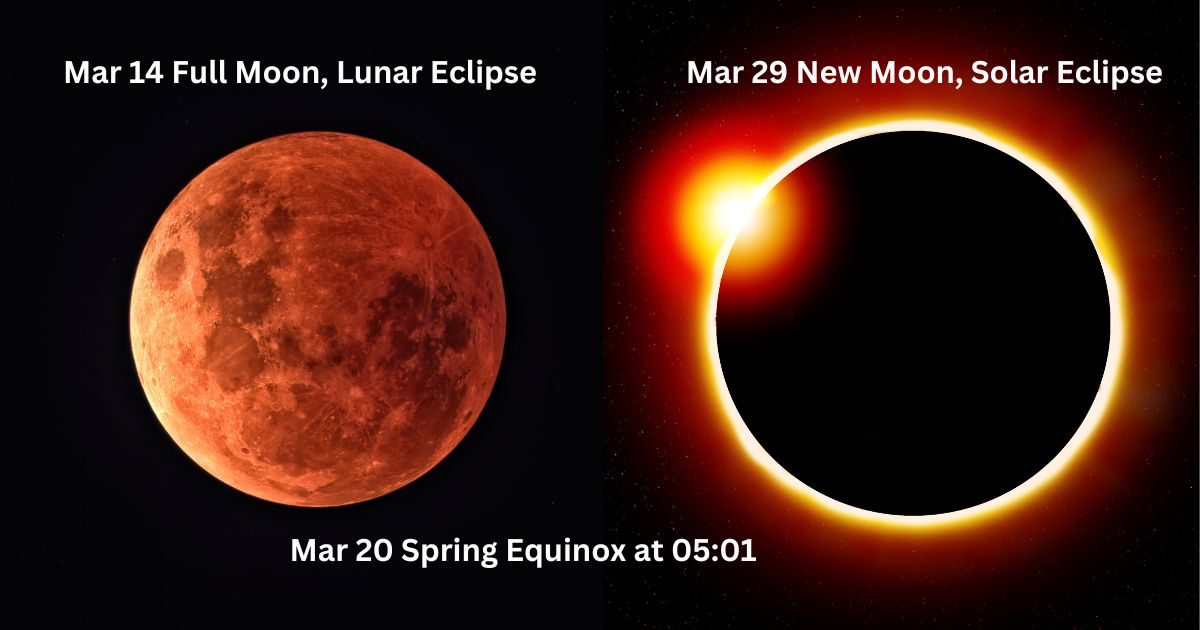Here’s the science you need to know.
Circadian rhythms are 24-hour cycles that are part of the body’s internal clock, letting us know when it’s time to sleep and signalling us to wake up. The master clock in the brain is tied to environmental cues, especially the cycle of day and night.
I first heard about the circadian rhythm about 20 years ago when attending an Ecology of the Night conference. As an astronomer, I approached the conference as one who enjoys the pristine night sky.
I did not know about the biological impact of artificial light at night. What I learned by listening to the presentations from biologists, psychologists, psychiatrists, ecologists, First Nations representatives, and
others blew my mind so much that I took a second look at the research literature. As a result, a few of us at the conference co-founded the science of Scotobiology, the study of the biological need for periods of darkness.
I approach the circadian rhythm as the time-dependent rhythms of biological and behavioural processes that maintain a robust and balanced ecosystem. Here are the most important things to know.
How To Maintain a Healthy Circadian Rhythm
- Find the sun early in the day. Taking a morning walk, enjoying your coffee outdoors, or moving your desk closer to a window are all great ways to get sun exposure.
- Get daily exercise. Make time for a minimum of 20 minutes of exercise every day. Climb stairs, take work calls on a treadmill or join a fitness class.
- Limit caffeine and avoid it after noon. Gradually wean yourself into a new routine, and you will be rewarded with better sleep.
- Reduce light before bed. An hour before bedtime, turn off the screens. The blue light from these devices can confuse your circadian rhythm into thinking it’s time to wake up.
- Follow a regular sleep schedule. Maintaining a consistent sleep schedule — even on the weekends — is one of the biggest ways to keep your circadian clock on track.
Your body has a 24-hour rhythm
The circadian rhythm has approximately 24 hours. This is because it is based on a half-billion-year development that extends over many species. Over that period, the rotation of the Earth has slowed from an 18-hour day to the current 24-hour day.
Our bodies are exquisite chemical machines. And like our engineered machines, they need a controller to schedule critical functions and communicate these to various parts of our bodies that do the work. The circadian rhythm does the controlling, but it too needs to know when to start the day.
Changes in your body happen in response to lightness and darkness Light starts the clock well, sort of. It is the end of the day that starts our internal clocks because the messenger that enables our bodies to begin is the hormone melatonin, which is accumulated during daylight and released after twilight, when the illumination levels of white light fall below (very roughly) 1-lux, or about 10X the illumination of the full moon, and coincidentally is about the threshold for our ability to read.
The release of melatonin begins by reducing our metabolism in the late evening, making us drowsy to encourage sleep. Sleep is critical because the night is the time for our bodies to repair damage, fight infection and otherwise rejuvenate to prepare us for another strenuous and stressful day. If we are active, then our energy is diverted away from these processes. Even as our circadian rhythm tries to make us healthy, if we try to fight it, we undermine the benefit. Melatonin also enables the release of other hormones that manufacture enzymes that do the actual work.
Your body’s natural clock may start to change as you get older As we age, we are less tied to this innate routine. Not only do our physical abilities change, but so does our biology. In the past, our life span was not much longer than 40 years, now, we live upwards of 80 years. But our biology has become less robust. Our peak melatonin levels fall below 50% as we age from 20 years to 60 years. Any additional light at night reduces the melatonin levels even further, affecting the benefits of sleep for people 60 years and older.

Your body temperature changes throughout the day
Most people are subject to a schedule of activities, and abilities, that ebb and flow over a 24-hour period. Even our oral body temperature varies over 24 hours and averages roughly 36 ̊C in the morning to 37 ̊C in the late afternoon and evening, with a wide range among different people, and this affects the rate of our biochemical processes throughout the day. There is no ‘normal’ body temperature.
Not everyone is most active in daylight
I have anecdotal reports that about 10-15% of the population is nocturnal. In fact, one of my friends is predisposed to be a night person. Needless to say, he was greatly relieved when he finally retired from his job that he worked during daytime hours.
When the natural day-night cycle is disrupted, your health suffers
Some of this may sound strange given our modern society, but we need to remember that biologically and genetically, we are still hunter-gatherers. Just because we now work an 8-hour day and stay up late to binge Netflix does not mean we can ignore our biological roots. If we try, our physical health and mental well-being will suffer.
Throughout the night, the concentration of melatonin decreases, and we begin to wake up. Other hormones are then released that make us alert in the mid-morning to avoid danger and for successful hunting. In the mid-afternoon, we need increased reaction time and body strength for successful hunting and gathering of food. Then our metabolism is reduced again in the late evening so we can rest and rejuvenate.
The circadian rhythm takes its cue from nightfall.
It extrapolates over the next 24 hours to control the production and release of a host of hormones that micromanage the many processes that must work well and at the right times for us to survive.

The normal scheduling of your body’s biochemistry has been interrupted
Modern human society has changed over the past tens of thousands of years. Our daylight activities have been extended beyond sunset with, first, the use of fire, then gas lamps and now electric light that stays on all night long. This interrupts the normal scheduling of our body’s biochemistry, and we are beginning to experience unforeseen consequences: anxiety, depression, emotional and physical stress, lingering illness and infections, and even the rise in diabetes and obesity and dementia throughout the population.
Birds and other animals have a circadian rhythm too
We can recognize the urban sky glow on the horizon and artificial lights. However, birds and other animals recognize the over-bright nights as the beginning of dawn, and they start their period of activity too early. The growth of urban sky glow has advanced the morning “bird song” (an indicator of avian activity) by an hour in urban parks, which leads to unproductive feeding activity that stresses the population. Trees may retain their leaves long past the time they should have released them in the autumn – stressing the plants through winter.
Your conscience awareness of artificial light at night does not change your biology Biological change requires
hundreds or thousands of years and widespread artificial light at night (ALAN), which has been around for about a century, has only dominated the night over the past 30 years. This is probably why we are seeing the decline in our health and our increasing reliance on the medical industry.
Not all people are affected the same way though. Perhaps my nocturnal friend, and others like him, may not be affected by ALAN as much as the daytime population. We don’t know. But I would rather not be the subject of this experiment. So, I turn off my indoor lights and those outside my house in the late evening when I go to bed. I let my circadian rhythm regulate my lifestyle.
How your circadian rhythm and body clock works
Start to pay attention to how you feel over the next 24 hours. Does it match up with this hunter-gatherer cycle that we descend from?
7:00 a.m. to 8:00 a.m. Melatonin secretion stops
8:00 a.m. to 9:00 a.m. Alert! Hunger
2:00 p.m. to 3:00 p.m. Best coordination
3:00 p.m. to 4:00 p.m. Fastest reaction time
5:00 p.m. to 6:00 p.m. High cardiovascular efficiency and muscle strength
8:00 p.m. to 9:00 p.m. Melatonin releases
9:00 p.m. to 10:00 p.m. Lower blood pressure and core temperature
9:00 p.m. to 3:00 a.m. Your body’s restoration period
2:00 a.m. to 3:00 a.m. Deepest sleep
One of Canada’s foremost writers and educators on astronomical topics, the Almanac has benefited from Robert’s expertise since its inception. Robert is passionate about reducing light pollution and promoting science literacy. He has been an astronomy instructor for our astronauts and he ensures that our section on sunrise and sunset, stargazing, and celestial events is so detailed and extensive it is almost like its own almanac.












